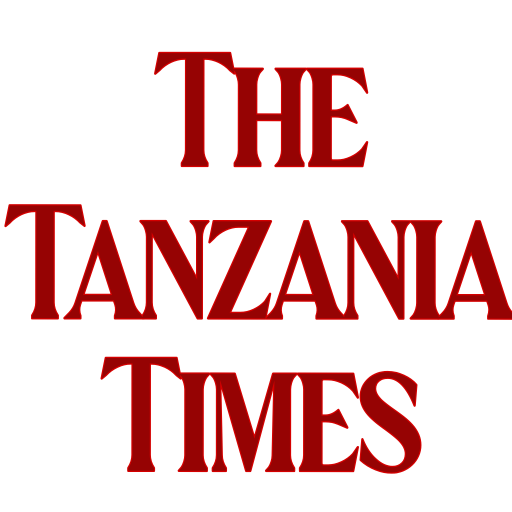Tanzania is among the African countries exporting products to Russia. Dar sends its Tobacco consignments to Moscow, however, the ongoing skirmish with Ukraine may smoke down the deal.
Total African exports to Russia add up to only about USD 5 billion, with imports totalling about USD 14 billion.

Total trade between the regions is small, at about USD 20bn, and trade disruptions resulting from the Russia‑Ukraine conflict will not seriously affect African economies.
However, it will affect certain African industries, such as Cocoa and Tobacco, and textiles and clothing.
The tobacco industries in Nigeria, Tanzania and Mozambique will be adversely affected by the conflict.
Clothing industry in Tunisia, in particular, will suffer negative impact.
Mining
The African continent is home to substantial reserves of copper and cobalt in the Democratic Republic of the Congo, Zambia, South Africa and Zimbabwe.
Diamonds are abundant in Botswana and Angola, platinum (in South Africa and Zimbabwe), uranium (in Namibia, Niger and South Africa), gold (in Ghana, South Africa and Sudan), iron (in South Africa), manganese (in South Africa, Gabon and Ghana), bauxite (in Guinea), lithium (in Zimbabwe), coal (in South Africa and Mozambique), natural gas (in Algeria, Egypt and Nigeria) and petroleum (in Nigeria, Angola, Algeria and Libya).
Africa contains about 12 percent of total global oil reserves, 12 percent of natural gas reserves, more than 80 percent of platinum group metals and more than 40 percent of the world’s gold.
Extraction of Africa’s reserves has been largely hindered by weak domestic governance structures and policy impediments, alongside the high risk of investments in Africa and low commodity prices during 2016‑20.
This has resulted in a notable shortage of exploration activity in the African mining sector.
However, many African commodity exporters—Zambia and Namibia in particular—have initiated procedures to create a business‑friendly environment in order to attract investments into their domestic mining sectors.
Elevated commodity prices are fuelling an export boom across Africa. High prices for copper, oil, iron ore, aluminium and gas will stoke investments and are all helping to reduce external imbalances, stabilise currencies and boost economic growth.
However, downside risks abound. The continent depends on energy imports (as net crude exporters have insufficient refinery capacity), and the war in Ukraine is set to stoke strong inflationary pressures.
Russian operations in Africa
Russian miners currently have their own sizeable investments in metal, energy and mineral concessions in Africa.
The concessions are largely concentrated in poorly governed and authoritarian states, namely Sudan, Guinea, the Central African Republic (CAR) and Mozambique.
In 2018 a Russian mining group, Alrosa, increased its stake in Angola’s Catoca diamond mine from 32.8 percent to 41 percent.
In the CAR and the DRC, Russia has substantial concessions in cobalt, gold, coltan and diamond mines.
In Zimbabwe, another Russian mining firm, JSC Afromet, operates a joint venture with Zimbabwe’s Pen East, developing one of the world’s largest platinum deposits.

Russian companies also have major concessions in more democratic states, such as a 50 percent stake in the Nkomati nickel mine in South Africa (owned by Nornickel, a metals company).
There is also a 49 percent ownership stake in South Africa’s fourth‑largest manganese miner, United Manganese of Kalahari (held by the Renova Group, a conglomerate owned by Viktor Vekselberg, a Russian oligarch).
In Namibia, Russia’s Uranium One group owns eight uranium exploration licenses; the largest, the Headspring Project, has sparked local opposition.
Sanctions to disrupt Russian mining operations in Africa but not seriously affect African states
Sanctions, that have largely been more severe than initially expected, will disrupt Russian mining activities in Africa, but are not expected to have a serious negative impact on the African domestic mining sector.
Sanctions on Russian miners (including both metals and energy producers) in Africa will create manageable downside risks, which are outweighed by risks to the upside stemming from steep increases in commodity prices.
However, given that most Russian mining operations in Africa are joint ventures that rely in part on Russian financing, it is possible that sanctions will cause disruption to mining operations and output levels as Russian funding is limited or cut off entirely.
The Economist Intelligence Unity
Disruption to projects in which Russian miners own stakes to be temporary, and the high prevailing price of most commodities will ensure that there is no shortage of buyers in the market for these concessions.
Sanctions will limit the ability of Russian miners to repatriate profits and receipts from the possible sale of concessions.
Currently, there remain options available for Russian miners to repatriate profits and clear foreign currency and international transactions, through unsanctioned Russian banks or foreign divisions of unsanctioned Russian banks.
Therefore, incomplete sanctions allow Russian miners to continue to operate in Africa, albeit with increased difficulty and probably at a higher cost.
The risk of a widening of sanctions—which as at March 14th do not directly affect Russian firms’ African operations—in the near term is high.
However, Russian miners may find ways around these sanctions and continue operations before possible solvency issues force them to liquidate and sell their concessions at a discounted valuation.


